Wildfly 11 - Web Console new features
This blog post will highlight the new features of Web Console for Wildfly 11. Wildfly 11 is in Candidate Release right now, you can download it, it’s free.
You can read what is new in WildFly 11. For now on I will talk about the new features that were added to Web Console. Besides the new features, there were many bug fixed and enhancements, you can check the list of fixed issues since Wildfly 10.1.
Elytron Subsystem
There is a new subsystem named Elytron, it replaces the picketbox security framework with an advanced capabilities such as privilege propagation across multiple service invocations, identity switching, pre-request TLS verification, and rich security policies.
The elytron configuration is available for every profile, the entry point is the “Security - Elytron” item menu.
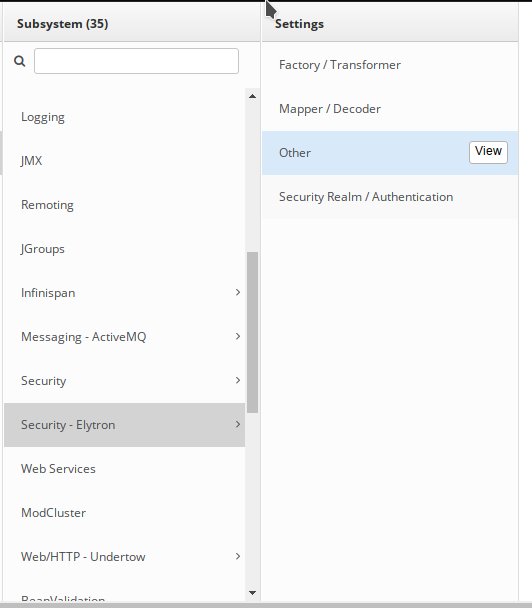
From there you may access the configurations for: Factories, Transformers, Mappers, Decoders, Security Realms, Authentication, Key Store, Credential Store, SSL Context, etc. Elytron is a new subsystem but it contains many resources to configure. See some screenshots.
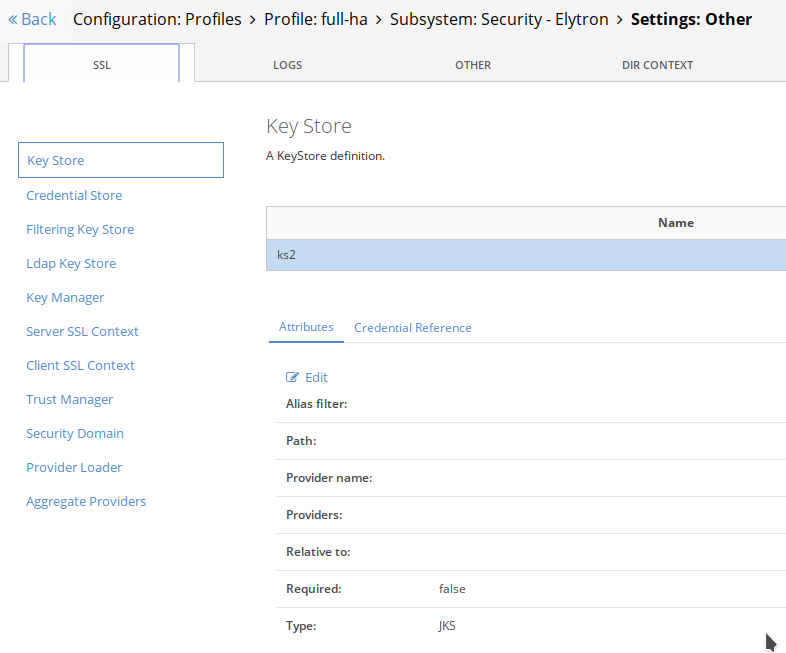
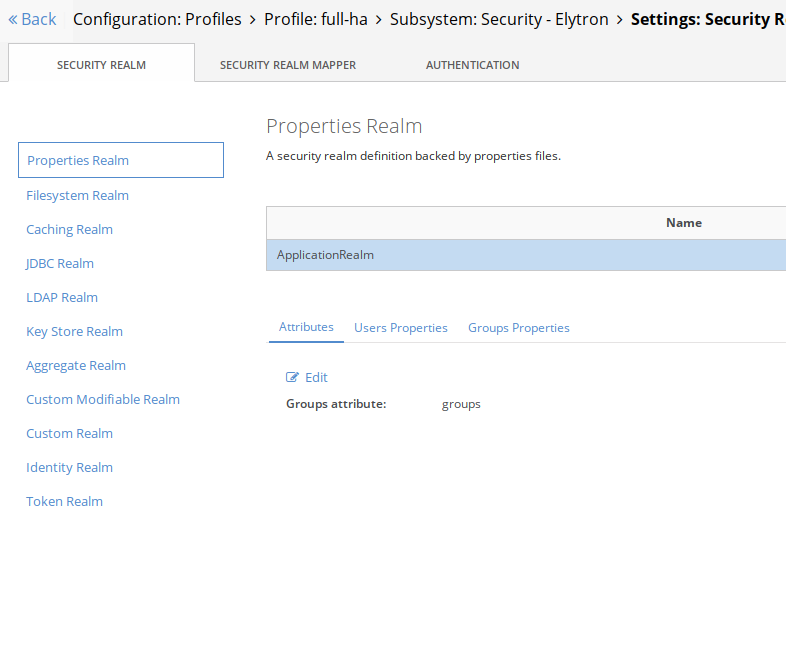
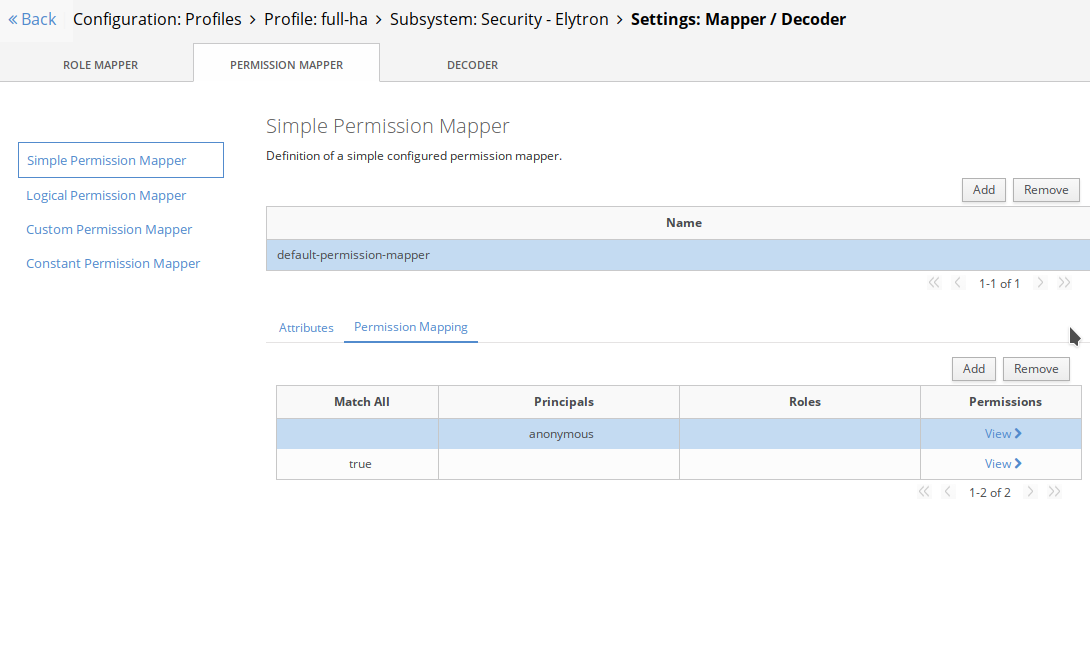
There is also a runtime view to display the aliases for the credential store.
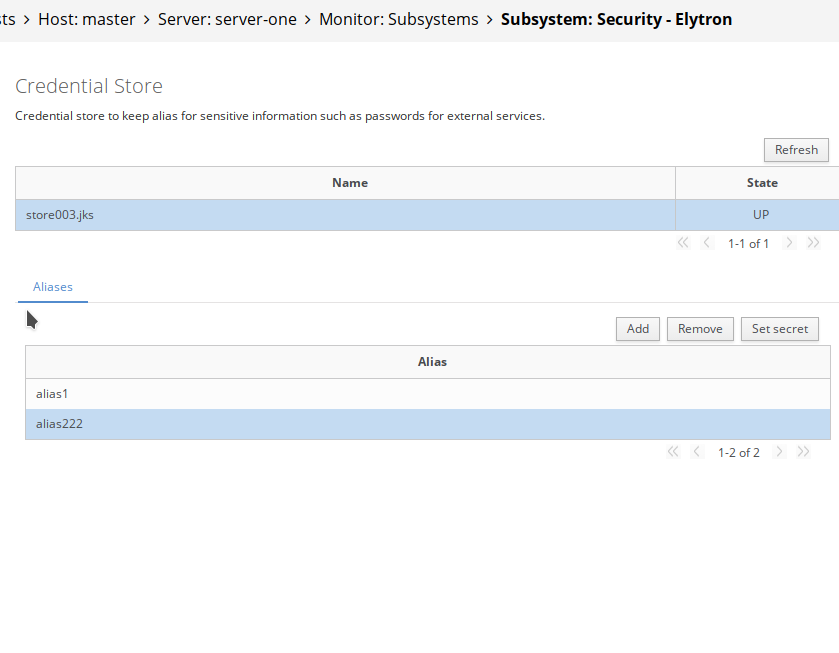
EJB Security Domain Mapping
The EJB subsystem allows to configure mapping a security domain for a deployed application.

JMS Bridge in Messaging subsystem
The Messaging subsystem in web console allows the user to manage JMS Bridges.
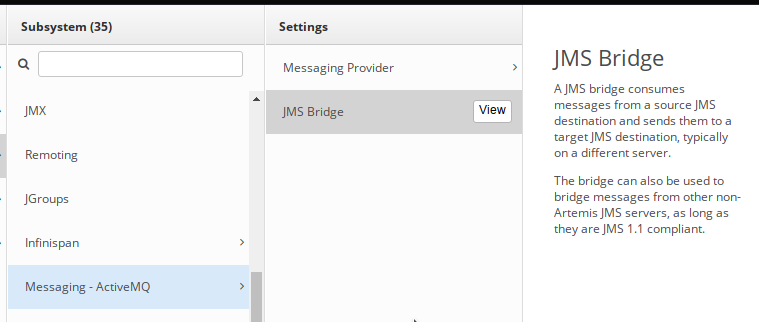
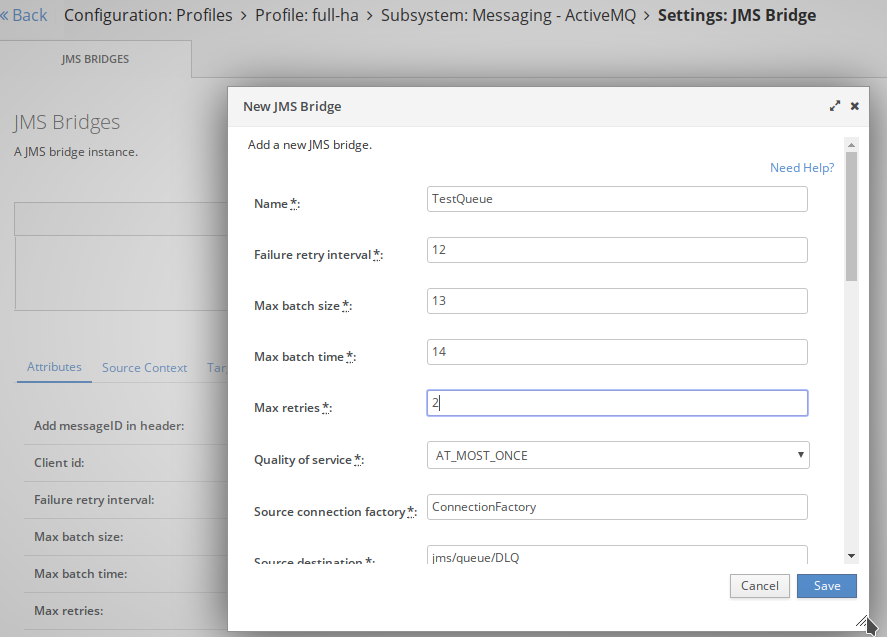
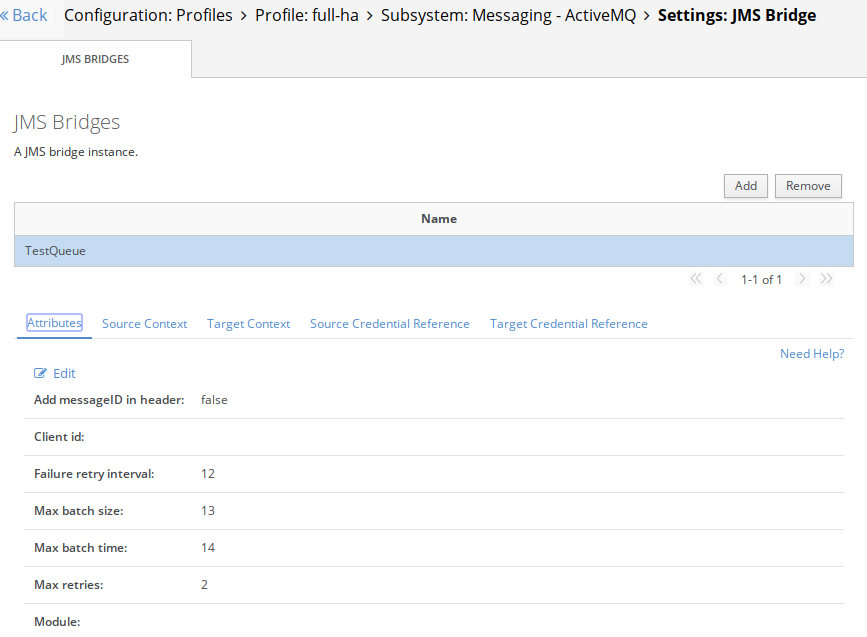
There is also a runtime view to monitor pool statistics for Pooled Connection Factory connections.
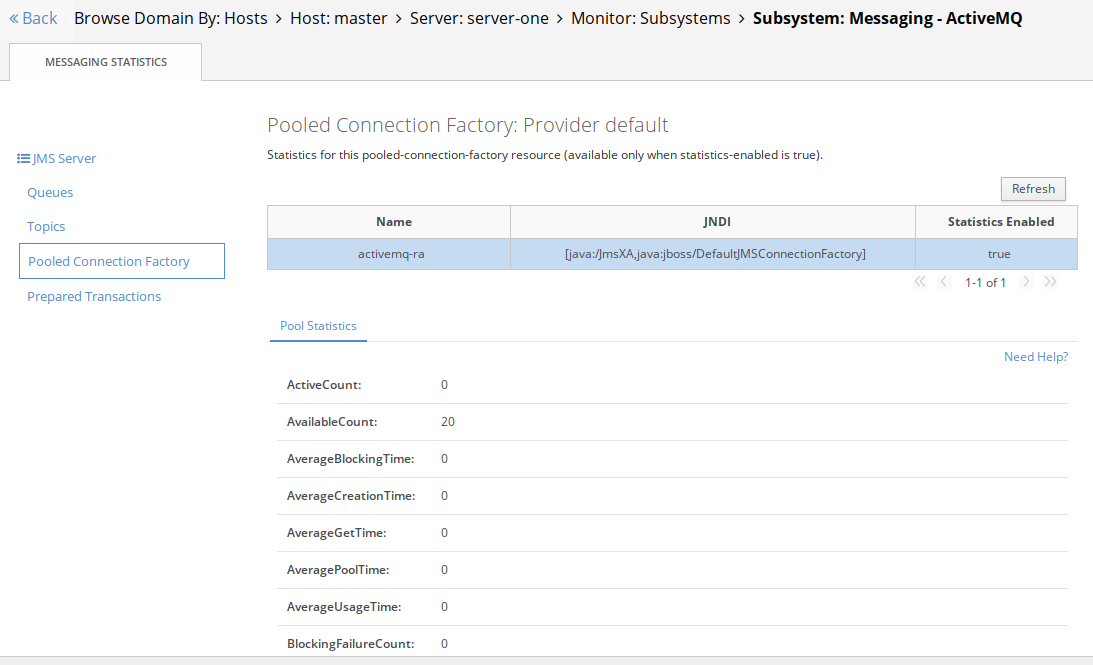

Web Services - Client and Endpoint configuration
User are allowed to configure Client and Endpoint configurations.
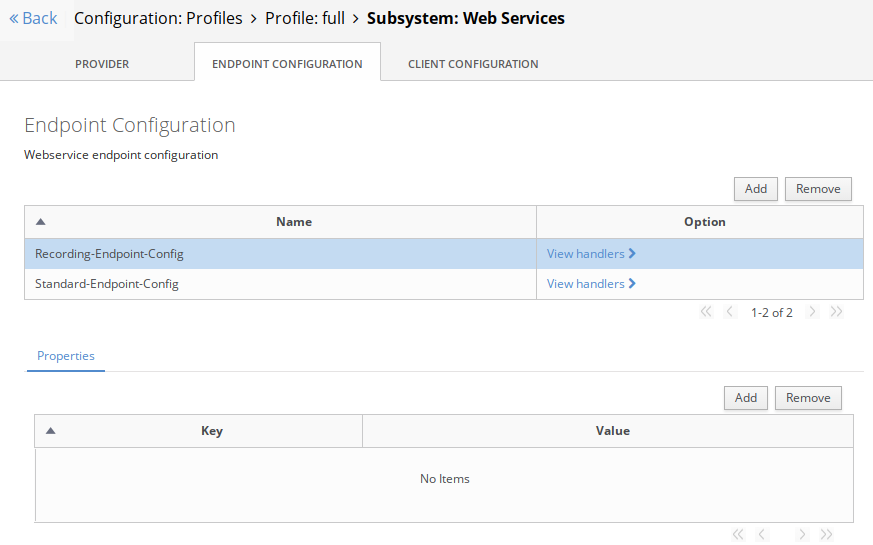
The Pre/Post Handler Chain is also allowed to configure.
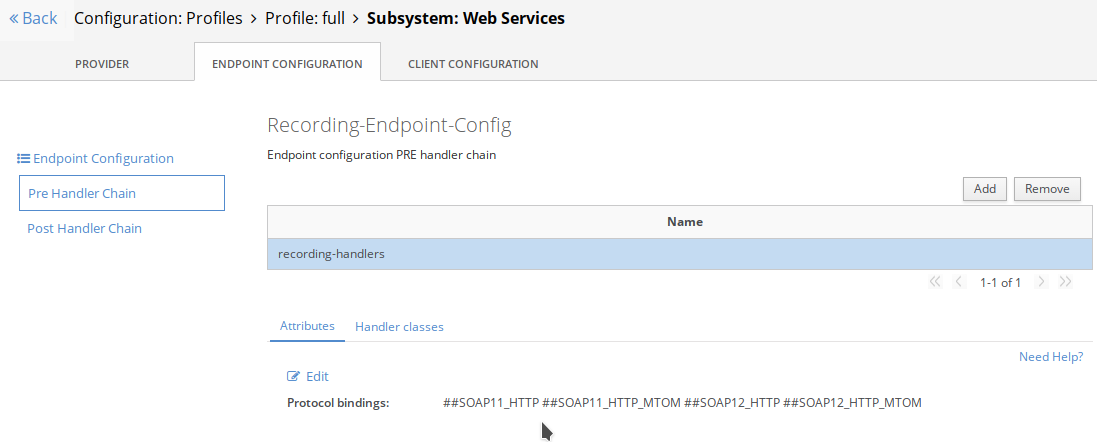
Undertow
Web Console users are allowed to configure undertow filters, application security domain mapping to deployed applications and map response header filter to hosts.
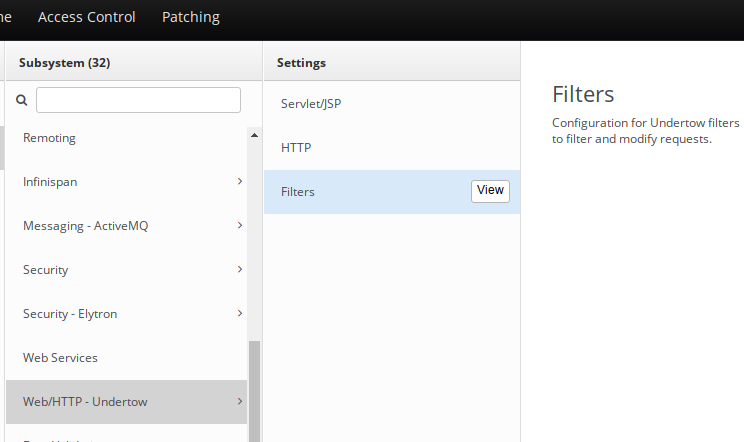
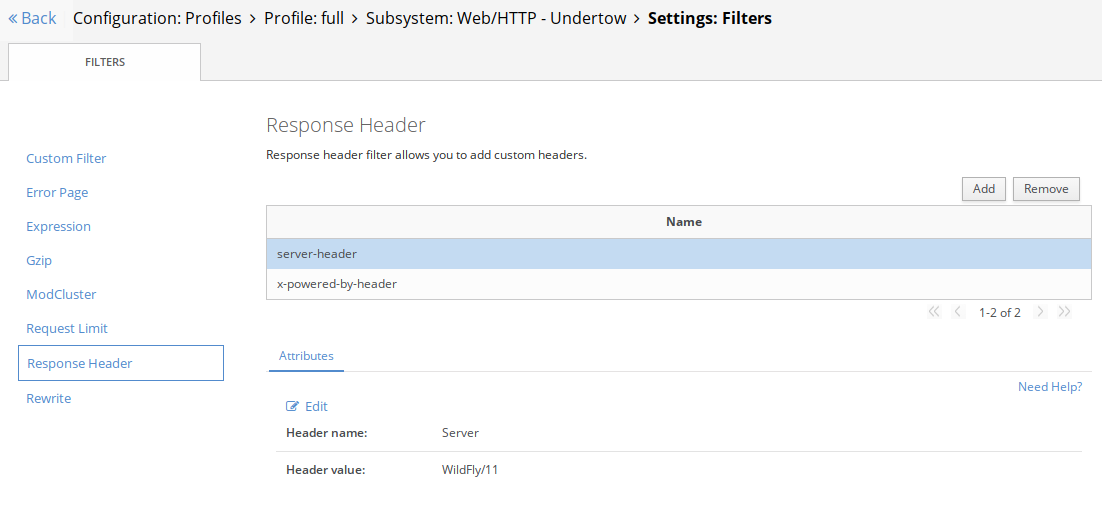
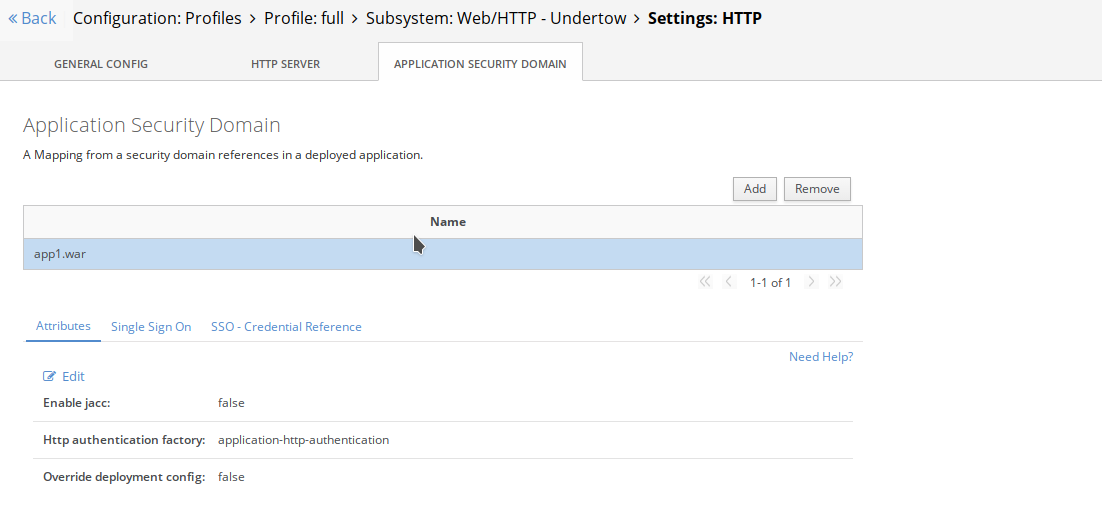
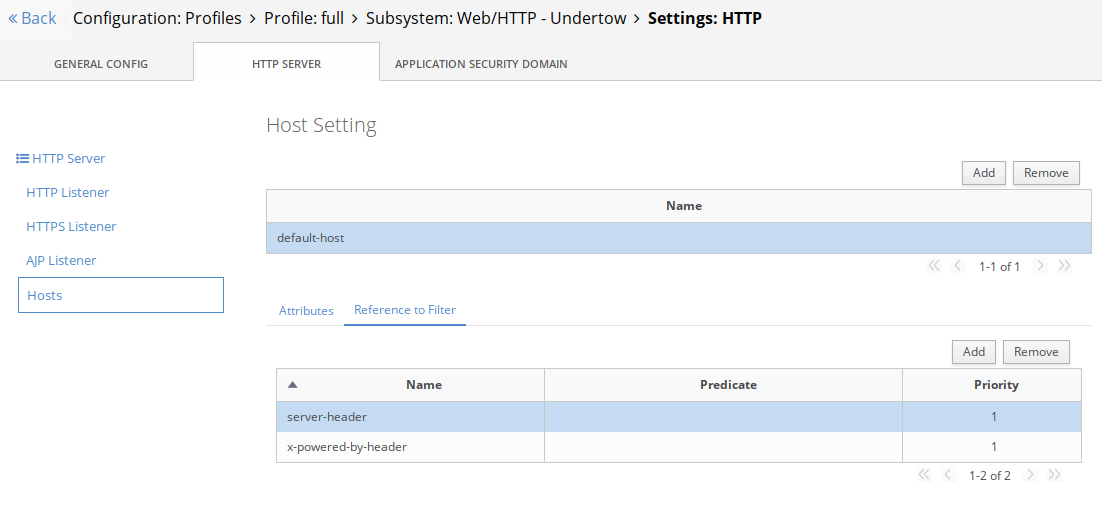
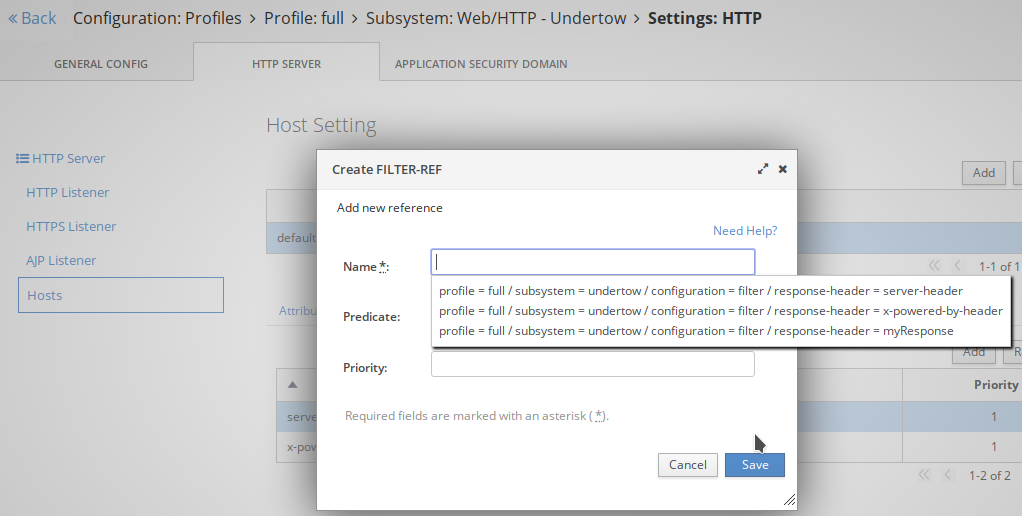
Runtime view - Hosts
Previously, when users wanted to reload or restart a host controller, they went to CLI to run those commands, now it is possible to reload or restart a host controller from the web console.
The restart option calls the management command as :shutdown(restart=true)
The reload option calls the management command as :reload()
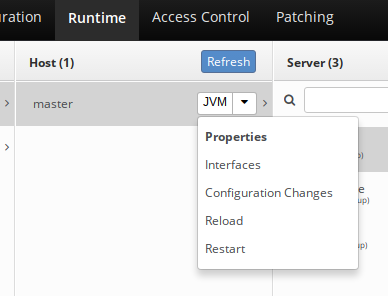
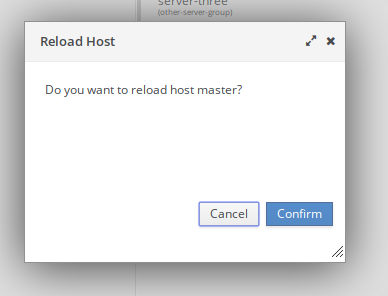
Also, there is a the configuration-changes log, to register all changes performed to a host controller. Users are allowed to enable/disable and monitor the configurations changes.
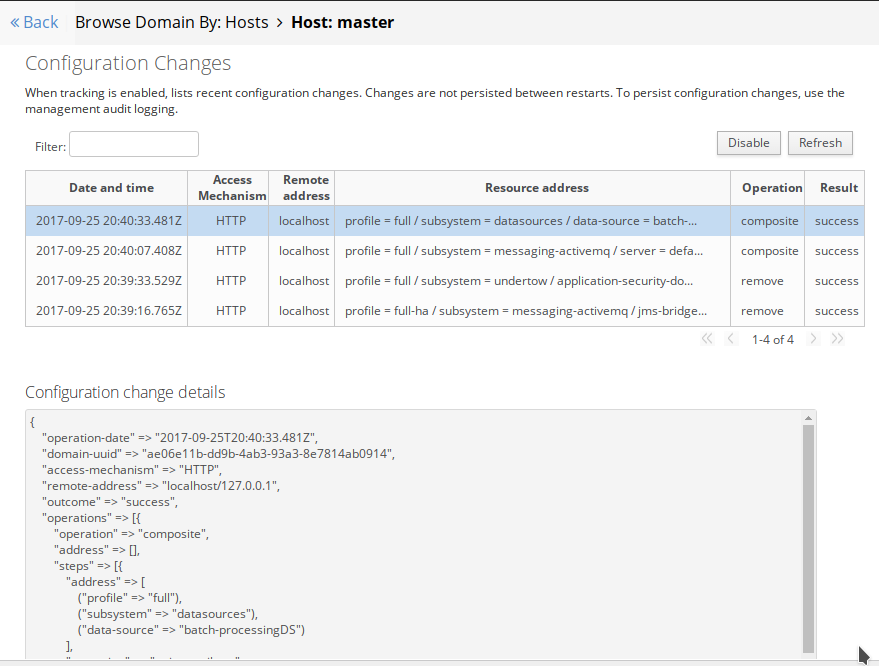
Runtime view - Server
Previously, when the server was in a blocked state, not responding, users needed to kill the server with a kill command (from a command prompt). Wildfly already contains an operation kill to destroy a server process. Web console allows the user to invoke the kill operation on a server, it is named Force shutdown, see below the menu option.
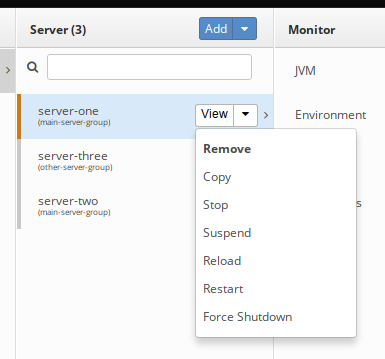
Runtime view - Monitor Batch executions
Application may package batch jobs and execute them in Wildfly application runtime. The batch subsystem allows to monitor them
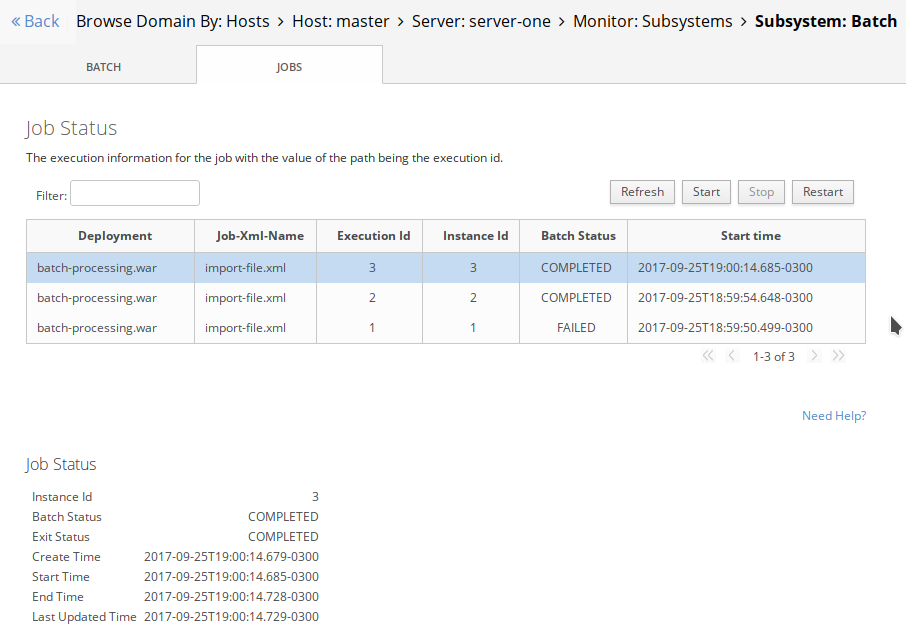
Runtime view - Monitor datasource pool statistics
There is a new view to monitor datasource pool statistics.
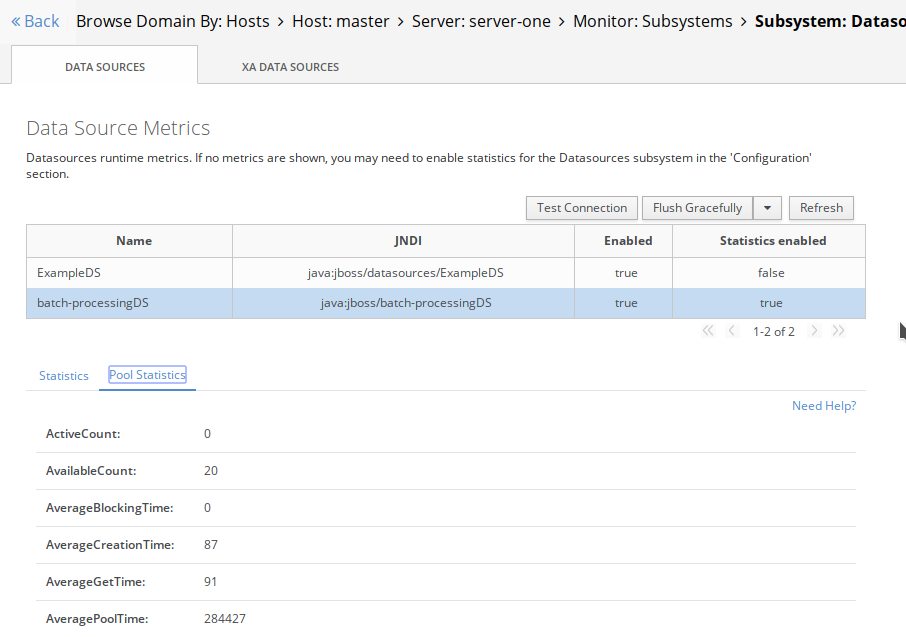
Browse deployment contents
It is possible to browse the content of deployments, this is useful when an user wants to navigate the contents of deployments and download its contents.
Emmanuel Hugonnet blogged a detailed view about this feature.
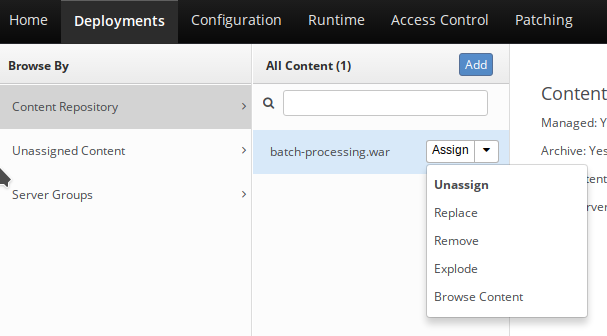
It shows the full path of each content item and its size.
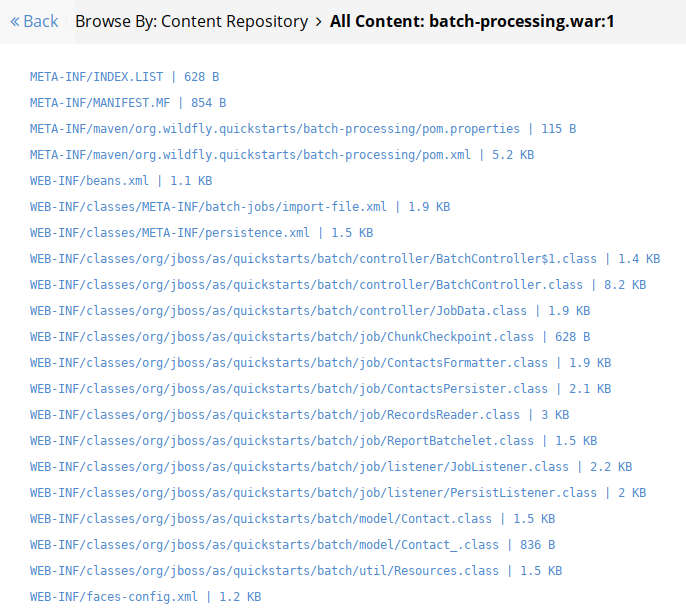

Deixe um comentário